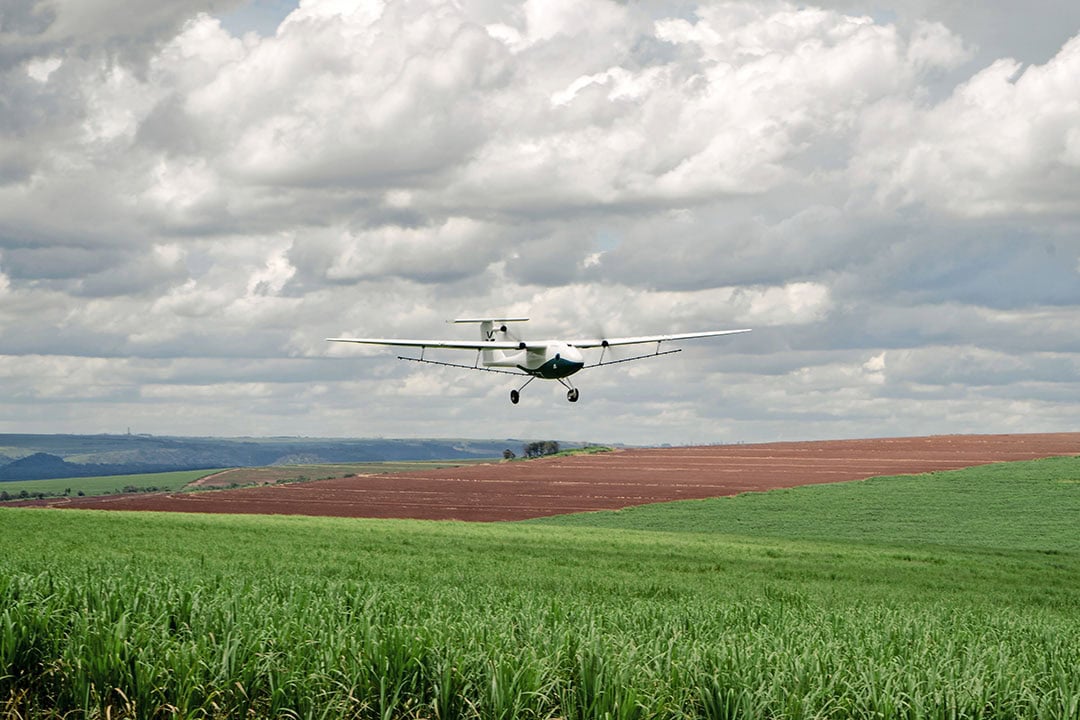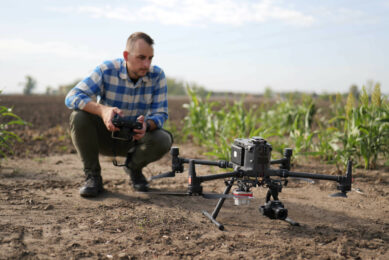Pyka Pelican on doorstep of getting commercial approval in US

The fully autonomous Pelican crop spraying aircraft has now successfully completed the final stage of flight demonstration for commercial approval in the US.
In May last year a Pelican took to the skies for the first autonomous fixed wing aerial application on a banana crop in the world. Several Pelicans in Latin America are currently spraying at 80% of their target rate (50.5 hectares/hr), with an application rate of around 40 hectares per hour. Pyka is focusing on fungicide application in banana and other crops in Latin America. Pelicans have now completed over 3,000 missions, including research and development flights.
Partnership with EmbraerX
Pyka recently announced a partnership with Brazilian company EmbraerX, the innovation arm of plane manufacturer Embraer, to accelerate future autonomous aerial agriculture operations. The collaboration is focused on technology, certification, operations, and future commercialisation of the Pelican. Both companies will pursue opportunities to scale commercial services as autonomous aircraft operations in Brazil evolve in the years ahead. “We are now working with an industry leading aerospace partner in one of the largest agricultural markets in the world to help scale our electric aircraft business,” Pyka CEO and C-Founder Michael Norcia says.
Releasing a larger spray aircraft
Pyka is planning spraying missions in Honduras as well. “The Pelicans are an extraordinary tool for the Latin American market,” Mr Norcia points out, “where there is intensive spray work. Down the road, we will be releasing larger spray aircraft. The current Pelican and its larger ‘brother’ should cover pretty much all aerial application activity. We haven’t pinned it down exactly, but we’re contemplating something that’s close to an Air Tractor 402.”
Commercial approval in the US

The Pelican has now successfully completed the final stage of flight demonstration for commercial approval in the US. “We are about to get commercial approval in the US,” Mr Norcia confirms. “It’s really exiting. It has been a long process. We’ve been working with the Federal Aviation Administration for two years. Once we get that approval, we will likely start up some form of operation in the US. Though our primary focus at the moment is Latin America.”
The US is the largest aerial spraying market in the world with US$ 800 million in annual sales, by an estimate of the National Agricultural Aviation Association. The startup from Oakland sees plenty of opportunities, with crops such as leafy greens and vegetables that need to be well presented on supermarket shelves. Those crops often are sprayed up to 15 times a year.
Newer models
Pyka is also open to entering other markets in the longer term. “We’ve operated successfully in New Zealand in the past. But we’re still a relatively small company, so we need to be a bit narrow in our focus,” Mr Norcia says. The company has so far completed the manufacture of eight airplanes. “Three aircraft have been delivered to different customers in Latin and South America, with number four due to be delivered to a new customer in the next few weeks,” Chief Commercial Officer Volker Fabian says. “Those are the aircraft that are in operation at the moment. Our customers in Latin America are large multinational food producers, as well as significant and long-established aerial spraying companies.”
Pyka expects newer models of the Pelican to have four motors instead of three. The autonomous plane will then provide even better take-off and landing, as well as single engine-out performance. This change is also part of our plans to seek new markets. “We have been approached by potential non-agricultural customers to develop a Pelican for cargo applications. And we already have two launch customers for that type of airplane,” Mr Fabian explains.
In 2023 we expect to increase production to about 25 to 30 airplanes
The Oakland manufacturer recently closed a US$ 37 million Series A funding round. The company intends to use the funds for the serial production of its Pelican aircraft to committed buyers and fund investment in research and development to expand its products into the cargo market. “We will now ramp up production and anticipate building one airplane a month until the end of the year. In 2023 we expect to increase production to about 25 to 30 airplanes,” Mr Fabian says.
Text continues below image

Competitive with an Air Tractor
Pyka is currently offering its airplanes for lease only. “We anticipate a technological evolution,” Mr Fabian emphasises. “Given technological advancements, customers will likely want to take advantage of the latest technology following the end of the initial long-term lease.”
The price of the Pelican depends on the type and number of spraying missions and the region, Mr Norcia says. “We price it to be competitive with an Air Tractor …”
Californian startup Pyka expects to launch its autonomous crop-spraying aircraft Pelican in the US soon. “We are about to get commercial approval,” CEO Michael Norcia says.
Join 17,000+ subscribers
Subscribe to our newsletter to stay updated about all the need-to-know content in the agricultural sector, two times a week.



